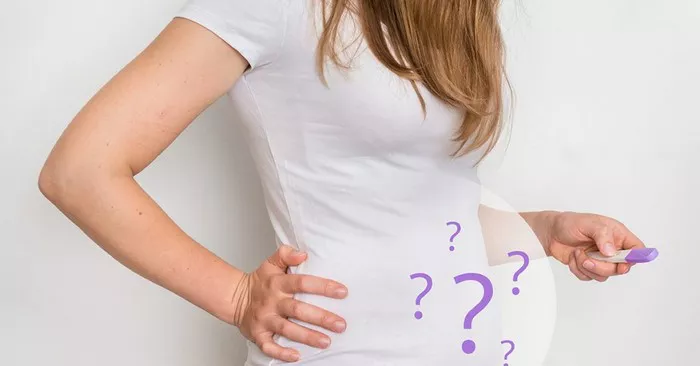Ovulation is a key part of a woman’s menstrual cycle. Understanding ovulation can help with family planning, whether you are trying to conceive or avoid pregnancy. This article provides detailed information about ovulation, its timing after the menstrual cycle, and factors that can influence it.
See Also: When Is It Least Likely to Get Pregnant? Understanding Your Menstrual Cycle
What is Ovulation?
Ovulation is the process in which a mature egg is released from the ovary. This egg is then available to be fertilized by sperm. Ovulation occurs once in each menstrual cycle and is a critical time for conception.
The Menstrual Cycle Explained
The menstrual cycle is divided into several phases:
Menstrual Phase: This phase starts on the first day of your period. It typically lasts 3-7 days. During this time, the uterine lining sheds, resulting in menstrual bleeding.
Follicular Phase: This phase overlaps with the menstrual phase, beginning on the first day of your period and ending with ovulation. Hormones like FSH (follicle-stimulating hormone) stimulate the ovaries to produce around 5 to 20 small follicles. Each follicle houses an immature egg. Usually, only one follicle will mature into an egg.
Ovulation Phase: Mid-cycle, a surge in LH (luteinizing hormone) triggers the release of a mature egg from the dominant follicle in the ovary. This is ovulation.
Luteal Phase: After the egg is released, the empty follicle transforms into the corpus luteum, which secretes progesterone. This hormone prepares the uterine lining for a possible pregnancy. If the egg is not fertilized, the corpus luteum breaks down, leading to a drop in progesterone and the start of menstruation.
Timing of Ovulation
Ovulation typically occurs around the middle of the menstrual cycle. For a woman with a 28-day cycle, ovulation usually happens around day 14. However, cycles can vary in length, so the exact timing of ovulation can differ.
Calculating Your Ovulation Day
To determine when you ovulate, you need to understand the length of your menstrual cycle. The menstrual cycle is counted from the first day of one period to the first day of the next. Here’s a step-by-step guide:
Track Your Cycle Length: Record the start date of your period for several months to determine the average length of your cycle.
Identify the Midpoint: Ovulation typically occurs in the middle of your cycle. For example, if your cycle is 30 days long, ovulation might occur around day 15.
Adjust for Cycle Variability: Not all cycles are the same length. Ovulation can occur earlier or later, depending on the length and regularity of your cycles.
Signs of Ovulation
Your body provides several signs that can indicate when you are ovulating:
Changes in Cervical Mucus: As ovulation approaches, cervical mucus becomes clear, stretchy, and similar to egg whites. This type of mucus helps sperm travel through the cervix to fertilize the egg.
Basal Body Temperature: A slight increase in basal body temperature can indicate that ovulation has occurred. This method requires taking your temperature every morning before getting out of bed.
Ovulation Pain: Some women experience a sharp or dull pain on one side of the lower abdomen, known as mittelschmerz, around the time of ovulation.
Ovulation Predictor Kits: These over-the-counter kits test your urine for the surge in LH that precedes ovulation. A positive result indicates that ovulation is likely to occur within the next 12-36 hours.
Factors Affecting Ovulation
Several factors can influence the timing of ovulation:
Stress: High levels of stress can delay ovulation.
Illness: Illness can disrupt your cycle and delay ovulation.
Travel and Lifestyle Changes: Changes in routine or time zones can affect your cycle.
Weight: Being significantly underweight or overweight can disrupt ovulation.
Age: As women age, the frequency and regularity of ovulation can decrease.
Irregular Cycles and Ovulation
Women with irregular cycles may find it more challenging to predict ovulation. Irregular cycles can be caused by:
Polycystic Ovary Syndrome (PCOS): A common cause of irregular cycles and ovulation issues.
Thyroid Issues: Both hyperthyroidism and hypothyroidism can affect menstrual cycles.
Hormonal Imbalances: Imbalances in hormones like prolactin can disrupt ovulation.
Lifestyle Factors: Excessive exercise, extreme dieting, and stress can lead to irregular cycles.
Monitoring Ovulation in Irregular Cycles
Women with irregular cycles can use several methods to monitor ovulation:
Ovulation Predictor Kits: These kits can still be useful but may require more frequent testing.
Cervical Mucus Monitoring: Paying close attention to changes in cervical mucus can help identify ovulation.
Medical Consultation: A healthcare provider can offer additional testing and monitoring, such as ultrasound tracking or blood tests.
Importance of Tracking Ovulation
Understanding when you ovulate can be beneficial for several reasons:
Trying to Conceive: Knowing your fertile window increases your chances of conception.
Avoiding Pregnancy: If you are not trying to conceive, avoiding intercourse or using protection during your fertile window can help prevent pregnancy.
Understanding Your Cycle: Tracking ovulation helps you understand your menstrual cycle better and can identify any irregularities.
Tools for Tracking Ovulation
Several tools and methods can help you track ovulation:
Basal Body Temperature Charting: Recording your temperature daily can help identify the slight rise that occurs after ovulation.
Ovulation Predictor Kits: These kits are easy to use and can provide a clear indication of when you are about to ovulate.
Mobile Apps: Numerous apps can help track your cycle, symptoms, and predict ovulation.
Professional Guidance
If you are having difficulty determining your ovulation or have concerns about your menstrual cycle, it may be helpful to seek professional guidance. A healthcare provider can:
Perform Tests: Blood tests, ultrasounds, and other diagnostic tools can help pinpoint ovulation and identify any underlying issues.
Provide Treatment: If there are underlying conditions affecting your ovulation, a doctor can recommend appropriate treatments or lifestyle changes.
Offer Support: Professional guidance can provide reassurance and support throughout the process of understanding and managing your cycle.
Conclusion
Understanding when you ovulate is a crucial aspect of reproductive health. By tracking your menstrual cycle, monitoring signs of ovulation, and using tools like ovulation predictor kits, you can better understand your body’s fertility patterns. If you have irregular cycles or difficulty determining ovulation, seeking professional guidance can provide valuable insights and support.
Ovulation typically occurs around the midpoint of your cycle, but individual variations are common. By being attentive to your body’s signals and using available resources, you can gain a clearer picture of your ovulation timing and enhance your family planning efforts.
Understanding ovulation is empowering. Whether you are trying to conceive, avoid pregnancy, or simply understand your menstrual cycle better, knowledge about ovulation timing is a valuable tool.
Related Links:



























